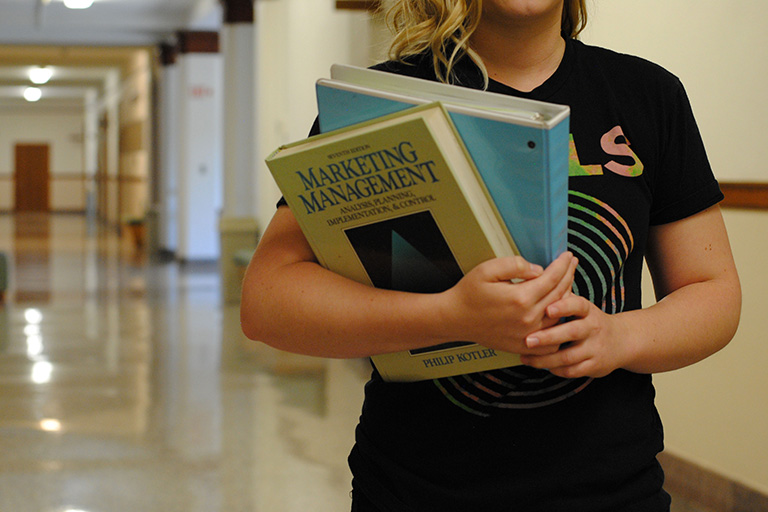Graduating from high school and leaving home for college can make you experience a lot of emotions. You are excited about a new change and to get started on your career, but at the same time, there are so many questions, feelings of uncertainty and wondering what to expect.
I moved from my small hometown in Oklahoma to a big university three hours away from my family and everything I knew. I was so excited to leave home and be on my own, but as the time for the big move came, I was flooded with questions and doubt about my abilities to take care of myself and to tackle the big scary real world alone.
The first thing you need to be aware of is that this is a big life change. Yes, change is good, but it can be scary, especially if you are moving away from a place you have lived your entire life. Allow yourself time to adjust. My adjusting consisted of a bunch of phone calls to my mom reassuring me that I am where I am supposed to be and that it might be hard now, but it will be worth it in the end.
Find a family member or friend you can lean on. Adjusting to living alone, or with a roommate you might not be too familiar with, and balancing school can be mentally draining. Accept the help and support from others. Remember: It takes a village!
Aside from the adjustment of living, there is also an adjustment in the rigor of schoolwork. I remember being so nervous during my first college class. I came prepared. I bought my textbook, laptop and all the writing utensils (I'm talking a highlighter, pens of all colors, pencils, extra eraser, etc.). I was expecting a full lecture the first day of class and a test. So, the nice thing in college, at least in my experience, the first class consists of the professor reviewing the syllabus with the class and making sure you have the correct textbook.
The syllabus is your holy grail for that class. It shows you the assignment deadlines, quiz deadline, etc. If you have a question, check the syllabus first before immediately emailing the professor a question that could be answered by the syllabus. Get to know your syllabus and plan accordingly in your personal calendar (if you use one, which you probably should).
The 411 on Textbooks: There are usually required readings for each class for the week. In my experience, I have had professors that create lectures completely around the textbook and summarize the content from the book. I have also had professors that base the quizzes on information from the textbook. My advice is to figure out how your professor lectures and structures the tests. This may take you a test or two to figure out where the content is surfacing from (lecture or textbook or both).
Figuring out how to study was an adventure for me in my undergraduate and, more specifically, in my first semester of college. Honestly, in high school, I did not have to study much. That was not the case in college. I did not know what type of learner I was and what worked for me in remembering course material. This was a trial and error process for sure, but once I discovered that writing notes over and over and putting them into outline form was most helpful, that was the method I stuck with.
Some people are auditory learners and learn by listening (lucky), some are visual learners and need pictures, charts and writing to learn, but most people are a combination of the two. Find what works best for you, and once you know, stick to that!
These are just a few things I learned during my first semester of college that might be beneficial for incoming freshman. College is tough and an adjustment, but it can also be the best experience of your life. Stick with it, hold your head up and enjoy the ride!



